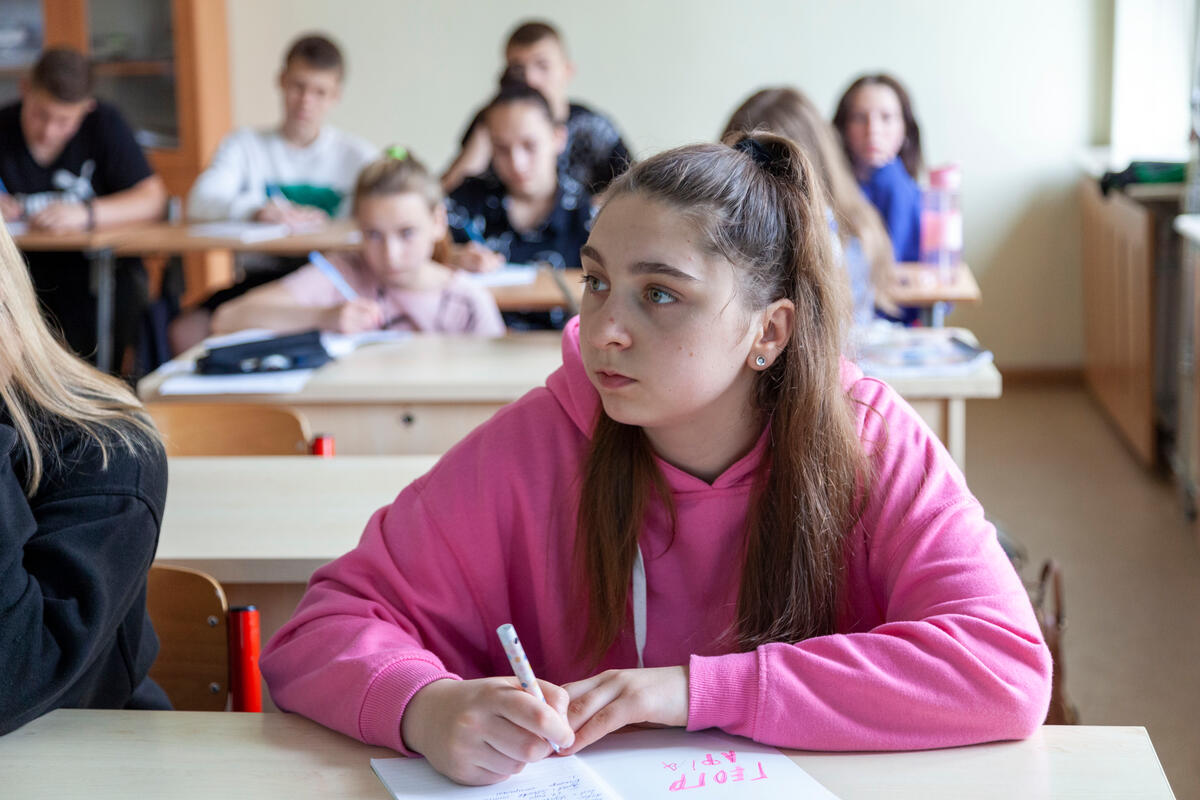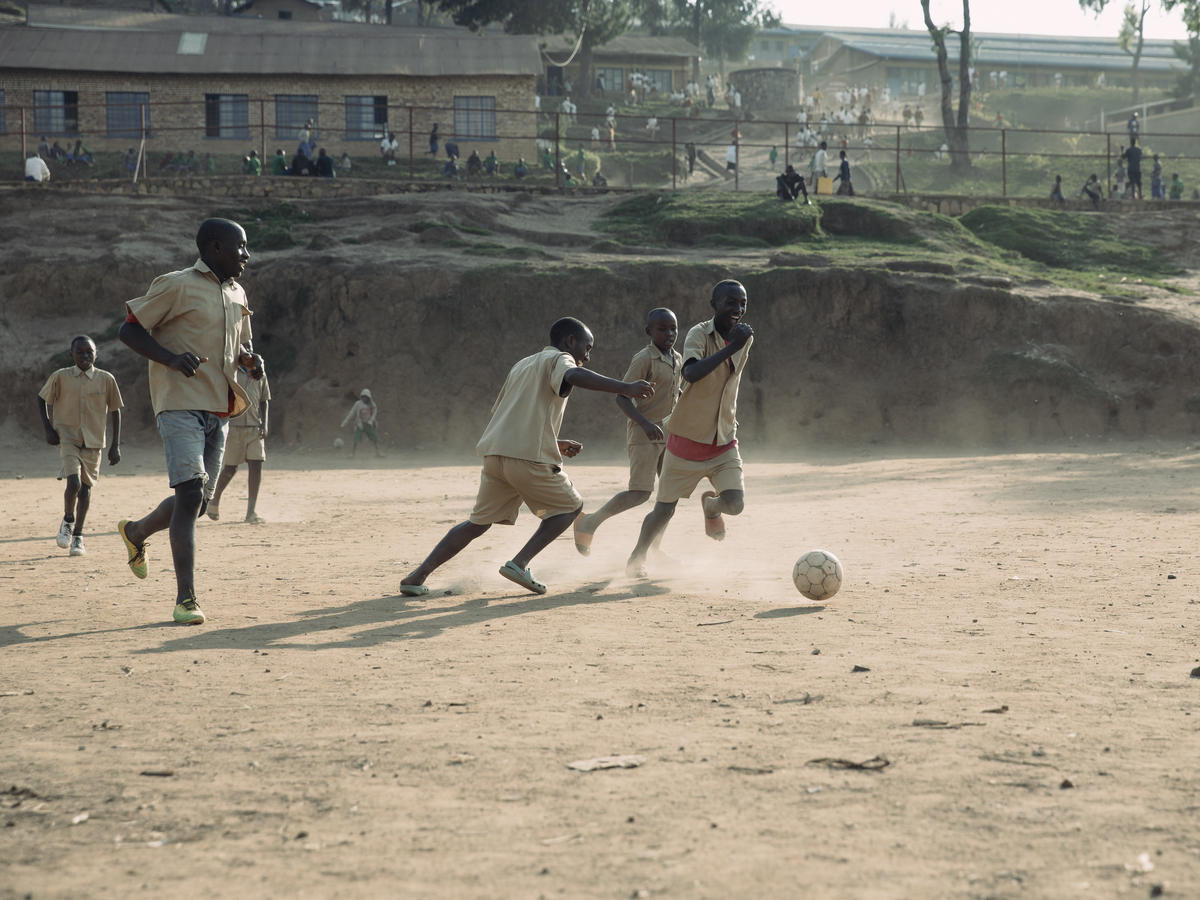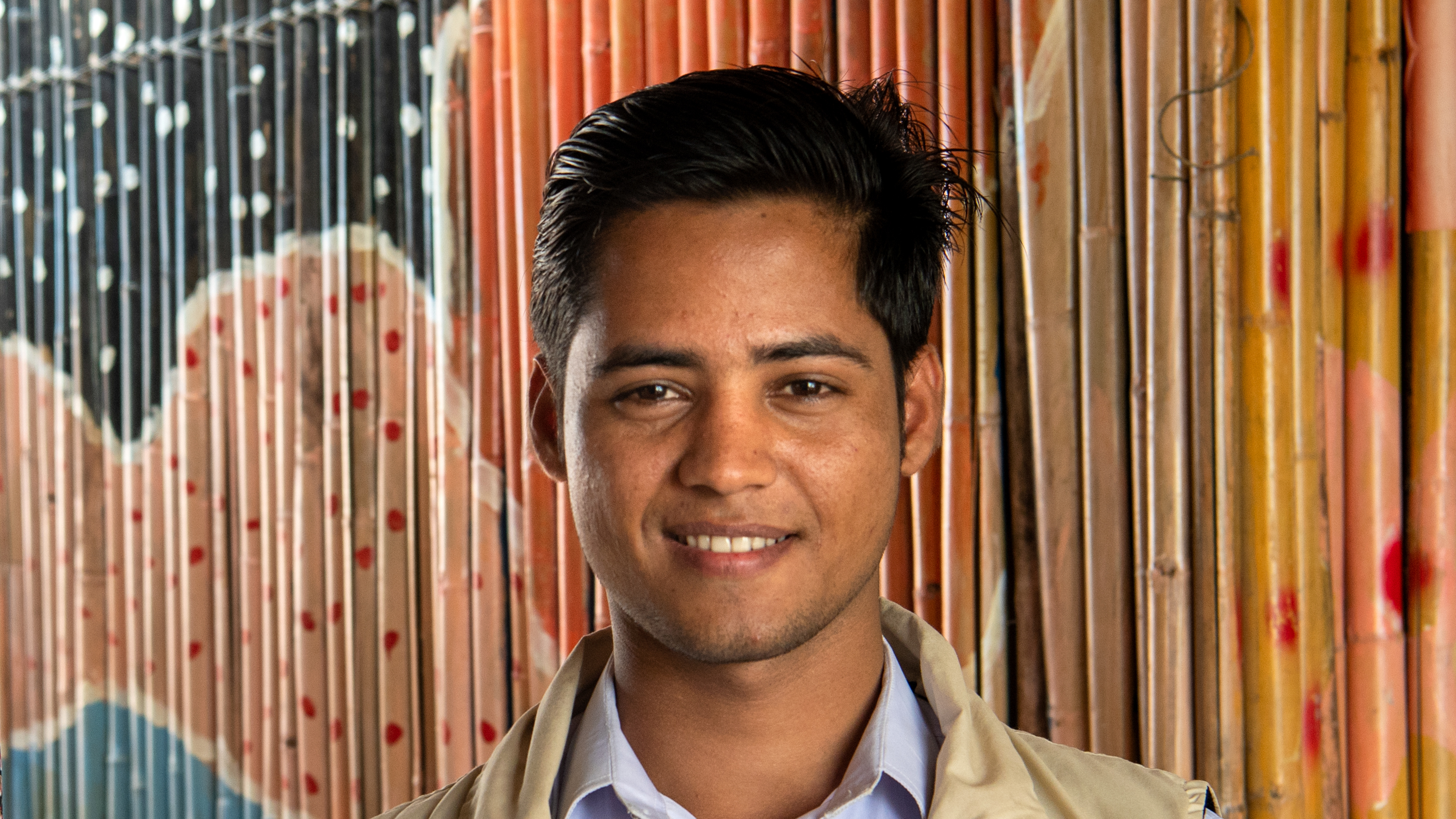Congolese girl gives voice to the world's millions of child refugees
Congolese girl gives voice to the world's millions of child refugees

JOHANNESBURG, South Africa, 6 June (UNHCR) - Mariam Kwete has moved a long way in the past seven years - from a provincial town in Congo to the concrete canyons of Manhattan, from life as a young student to being a spokesperson for the world's child refugees.
Mariam, expecting a city resembling sprawling Johannesburg rather than the packed towers of New York, joined almost two dozen other children from around the world late last month at the UN Children's Fund headquarters in New York. Their role was to contribute to the UN's study on violence against children, which is to be issued next October.
"I was the only refugee child at the meeting," says the 16-year-old, who arrived in South Africa as a nine-year-old with two younger sisters and an uncle after her lawyer father went into hiding from the authorities in the Democratic Republic of the Congo. It was another two years before he could join them and a similar period before his wife and three other children reached the safety of South Africa.
"They talked about the violence they experienced in their countries," Mariam says of the other children at the May 23-26 meeting in New York. From as far afield as Japan, India and Canada, the Congolese teenager found them focused on violence in the home or in schools - only part of the problems that refugees face.
"Our violence is different," says the soft-spoken girl. "We experience discrimination because we are refugees. Prejudice at school, suffering, because our parents don't have any money. There are a lot of different kinds of violence."
The UN study about the extent, nature and causes of violence against children was launched by UN Secretary-General Kofi Annan in February 2003. The final report will recommend action that could be taken by the UN system, the member states and civil society.
At the end of 2005, UNHCR was concerned with 20.7 million people, about half of them children under the age of 18. When the UN refugee agency was asked to send a participant to the New York meeting, Mariam's experiences made her an ideal spokesperson. Some of the millions of refugee children may have suffered more, but most of the world's billions of children have never faced the struggle to survive that she and her family have been through.
Mariam had participated in a UNHCR study carried out for the UN investigation of violence against children in Angola, Zambia and South Africa. Part of that involved a psychosocial project in which children made paintings to express their experiences: life before they became refugees, the trauma of becoming a refugee, and life in the countries that gave them sanctuary. The children's suggestions for preventing the violence were taken to the New York meeting.
Their pictures revealed the frightening past that brought the children to South Africa, including images of bodies and flying bullets. But problems are not always over for children when they reach a safe country - they just face different ones.
After their arrival in South Africa, the Jesuit Refugee Service started caring for Mariam and her sisters when there was concern about living conditions. The agency, which works with UNHCR, placed the girls with a foster family until their father finally traced them and phoned from his hiding place in Kinshasa.
"After two years without hearing the voice of our children, I was asking forgiveness, first from those who protected my children and then from my family. I was crying so much," Mariam's father Mikobi Kwete recalls. "I didn't think I would ever find my children alive."
In a country where the government and UNHCR run anti-xenophobia campaigns to counter prejudice against foreigners, the Kwete family could serve as a model of the benefits refugees can bring to South Africa: educated, hardworking and determined to see their six children succeed. "I want to stay in South Africa," says Mikobi Kwete. "I have given enough of my life to my country. I have to prepare the lives of my children."
The former prosecutor arrived in South Africa soon after his tearful conversation with his children. Penniless, they initially lived in one room. Mikobi Kwete could only find work as a poorly paid night watchman.
Gradually, he found better paid guard positions and worked at improving his English. He found extra work translating and writing letters for others from the French-speaking Congo who are in South Africa. Now he is earning a modest but steady income providing documents for other Congolese and is hoping for a scholarship to add a South African law degree to his Congolese credentials.
A month ago the Kwete family moved to a comfortable three-bedroom house in a quiet Johannesburg street, leaving the crime-infested area where they had previously lived. New curtains were added this week with the money Mariam saved from the allowance given for her trip to New York.
By Jack Redden in Johannesburg, South Africa








